There's something about marijuana that makes even the most enterprising cities procrastinate.
Consider Palo Alto, where — with the looming legalization of recreational-pot sales on Jan. 1 — the City Council is preparing to approve later this month a moratorium on pot dispensaries. This will be the second time in two years that the council will pass such a ban — the first is set to expire in November.
It's not that Palo Alto council members hate marijuana — a position that would make them a minority in a city where two-thirds of the voters supported Proposition 64 last fall. It's just that they'd rather put off answering the question that every municipality is now wrestling with: How do we feel about having pot shops in our city?
Palo Alto is one of many Midpeninsula cities taking a conservative, wait-and-see approach. Since September, Menlo Park, Cupertino, Woodside and Sunnyvale have all adopted anti-pot ordinances, an action that Palo Alto is scheduled to consider on Oct. 30. Los Altos and Milpitas adopted bans on sales and cultivation of recreational marijuana earlier in the year, while Sunnyvale and Los Gatos are revising their zoning codes to prohibit commercial marijuana activities. Campbell voters went to the polls in April to approve a council-backed measure that bans dispensaries at least until April 1, 2019.
The defensive municipal crouch may seem a bit odd, given the popularity of Prop. 64 and the general enthusiasm among local officials for decriminalization of marijuana. Palo Alto Councilman Cory Wolbach, chair of the council's Policy and Services Committee, referred to the drug war as "fraudulent" during a discussion last year.
He told the Weekly recently that he considers it tragic that so many people are arrested and have their lives turn upside down and their families torn apart because of drug laws. But when asked about the prospect of allowing marijuana dispensaries in Palo Alto, Wolbach had to pause.
"I'm not sure I'd want a pot shop in my neighborhood," Wolbach said.
While current council members are ambivalent about marijuana, city leaders have a history of snubbing their nose at pot. In 1997, the council voted to ban medical-marijuana dispensaries. And in 2012, the Palo Alto council took a unified stance against a citizen petition to allow up to three medical-marijuana dispensaries and to impose a 4 percent tax on gross receipts.
At the time, Greg Scharff and Liz Kniss (now the city's mayor and vice mayor, respectively) were part of a group of officials who co-signed a ballot argument against Measure C that described medical-marijuana dispensaries as "hotspots for crime," claimed that cities with dispensaries have experienced "an increase in crimes such as burglary, robbery and the sale of illegal drugs" and argued that allowing and taxing up to three medical-marijuana dispensaries would "increase marijuana use by our kids and it will hurt them physically and academically."
"The biggest threat to our children and our community is to blur the line between dangerous, illegal drugs and medicine," the argument stated (the ballot measure was overwhelmingly defeated).
With the passage of time, however, City Hall's position on marijuana has become both less shrill and more opaque. Recent public hearings on marijuana policy barely mentioned the issues that dominated the discussion in 2012: crime, health and illegal sales.
Scharff acknowledged his view on marijuana has shifted somewhat. Like Wolbach, he said he supported Prop. 64. He also noted that some communities now have dispensaries that are "clean, well-done and look great" — a departure from his 2012 depiction of these businesses as "hotspots of crime."
The council's more recent conversations on marijuana policy have been relatively brief, with few public comments and little disagreement. In general, members have deferred to advice from the City Attorney's Office, which amounts to a "ban now, revisit later" approach. Strikingly, the council's usual appetite for being at the head of the pack on all things green — whether carbon-neutral electricity, zero waste or solar panels — goes out the window when marijuana comes up.
"Palo Alto doesn't seem to have any enthusiasm to be leader on this issue," Wolbach told the Weekly.
Waiting for state guidelines
The general reticence of some — though not all — Midpeninsula city councils stems in part from the fact that the state has yet to actually finalize marijuana regulations.
With less than three months until recreational-pot sales become legal, the California Bureau of Cannabis Control is preparing to release next month its guidelines for such dispensaries, with the expectation that it will start issuing licenses to these businesses on Jan. 1.
According to Alex Traverso, spokesman for Bureau of Cannabis Control, the guidelines will contain specific regulations on locations of dispensaries, hours of operation, security requirements and cannabis quantities, among others.
Some of these are already addressed in Prop. 64. For instance, the measures requires marijuana retailers to implement security measures that prohibit people from remaining on a dispensary premises if they're not engaging in an "activity expressly related" to the dispensary's operation; to have areas accessible only to authorized personnel; and to store all marijuana products (other than the limited amount used for display) in a locked room, safe or vault. Dispensaries will also be prohibited from setting up shop within a 600-foot radius of a school, day care center, or youth center (cities can specify a different radius) and from allowing anyone under 21 on site.
Yet Prop. 64 also charges the Bureau of Cannabis Control (formerly known as the Bureau of Medical Marijuana Regulation) with coming up with specific regulations in areas like transportation-safety requirements and special licenses for nonprofit dispensaries.
Given that the agency has yet to release these guidelines, staff from Palo Alto's City Manager's and City Attorney's offices argued at recent hearings that unless the city adopts a local ban now, it will lose the power to control its own destiny on marijuana. Dispensaries will get licenses, set up shop and get grandfathered in, the thinking goes, so that even if the council decides at a later date that it hates marijuana shops, it will be too late to do anything about them.
"A lot of our thinking is driven by the Jan. 1 deadline, where we sort of lose some of our authority," City Manager James Keene said at the June 13 meeting of the Policy and Services Committee, which concurred with his view and recommended extending the city's original October 2016 ban.
The Sunnyvale council followed similar logic when, after a brief discussion, it voted unanimously on Sept. 26 to ban commercial operations in its city. Things are so in flux when it comes to state law, Councilwoman Nancy Smith said during the discussion, that if the council didn't adopt a moratorium, "Our local ordinances would be pre-empted."
"We're doing this because we want local control," Smith said.
Ken Rosenberg has no such reservations. The mayor of Mountain View proudly announced on Sept. 19 that he was one of the 68 percent of city residents who supported Proposition 64. At that meeting, the council agreed that, rather than banning dispensaries, the city should amend its zoning code to permit and regulate commercial marijuana activity.
It would be odd, Rosenberg said, for a city to vote favorably for the proposition and then "turn away from it."
"Mountain View is known for its leadership on all sorts of different issues, and I can't see why we wouldn't be on this issue as well," Rosenberg said at the Sept. 19 meeting.
His colleagues largely supported his position. Councilwoman Pat Showalter said the council would be "shirking our responsibility" if it acted as if marijuana wasn't legalized. Vice Mayor Lenny Siegel said he sees in marijuana dispensaries an "opportunity" to reinvigorate Mountain View's commercial areas. The city, he said, has been struggling to attract retail to some of its major shopping districts. He proposed making zoning changes to allow dispensaries in downtown Mountain View, the San Antonio Road area and some sections of El Camino Real.
"To me, this is a setting people should be able to go to after their dinner and dessert in downtown Mountain View," Siegel said. "To me, it's socially acceptable in this area, and we shouldn't pretend otherwise."
Mountain View isn't the only city eyeing the potential revenue of legalized marijuana. Earlier this year, the Campbell council reacted to Measure B — a citizen initiative that would have legalized and taxed up to three marijuana dispensaries — by placing two competing measures on the same ballot: Measure C, which would ban dispensaries until at least April 1, 2019, and Measure A, which would institute a 7 percent tax on gross receipts from any marijuana business operating within city borders, including delivery services and manufacturers. In April, city voters approved the two measures backed by the council and rejected Measure B. So while dispensaries won't be coming to Campbell for a while, the city expects the tax to bring between $130,000 and $260,000 annually to the city's General Fund.
Santa Clara is also exploring the economic benefits of allowing and taxing marijuana. During its Aug. 22 discussion, members of the City Council expressed some concern about allowing commercial growers in the city. Dispensaries, however, should be allowed and highly regulated, council members said.
Vice Mayor Dominic Caserta argued that a moratorium is the "wrong way" to approach the issue and pointed to the fact that 60 percent of the city's voters backed Prop. 64 — a proportion that he said amounts to a "landslide."
He supported allowing dispensaries, tightly regulating them and ensuring that none are located near schools or other facilities with children. Even though Prop. 64 already prohibits marijuana businesses from operating within 600 feet of such facilities, Caserta proposed possibly raising the buffer zone to 1,000 feet. The goal, he said, is to capture the revenue potential of this fledgling industry.
"It's happening in our city illegally, so let's make it legal," Caserta said.
Carlos Romero, a member of the East Palo Alto City Council, also argued that his city should consider the financial advantages of keeping marijuana legal, including eligibility for state grants that could be used for drug-prevention activities for youths. One idea that he floated during a July 22 meeting is limiting the number of dispensaries to one or two in his city of 30,000 residents.
Like Caserta, he acknowledged that marijuana is already being grown and smoked in his community.
"I know for a fact that when I bike down our streets or have barbecue in the back of my yard or go to MLK Park, I at times am surrounded by pot, by the smell. ... If we do use it recreationally, I think we may seriously want to think about whether or not we should allow the sale of it," Romero said.
East Palo Alto Mayor Larry Moody agreed. The cannabis movement has gained so much momentum, Moody said, that you "can't ignore the economics associated with it." He also pointed to cities such as San Jose and Oakland, which have collected $2 million and $4 million in revenues from their respective marijuana dispensaries, Moody said.
"I'm optimistic that part of the way we get in front of this is to provide some leadership around creating dispensaries in this community," Moody said.
Council supports delivery services
Palo Alto, meanwhile, is quite content with following other cities' leads. Though the council's Policy and Services Committee briefly discussed a future tax and requested that city staff come back with more information, city leaders are loathe to roll out the red carpet on University and California avenues for marijuana dispensaries. In an interview this week, Scharff noted that the city has recently adopted bans on cigarette smoking in parks, public plazas and on the sidewalks of downtown and California Avenue. For the same reason, having marijuana smoked in the city's commercial areas "does not have a good feel to it," he said.
Unlike council members in Mountain View and Santa Clara, Scharff believes that most residents in his city don't want dispensaries in prominent downtown areas — their support for marijuana legalization notwithstanding.
The goal of the council's dispensary moratorium, he said, is not to deprive people of pot. In fact, the council explicitly excluded delivery services from its prohibition on marijuana activities, he said, in recognition of the fact that some people rely on pot for medical reasons. Vice Mayor Liz Kniss, who in 2012 co-signed the anti-Measure C argument, made a pitch for not prohibiting delivery of medical marijuana at the Policy and Services Committee's June meeting. At that time, Kniss called marijuana a "very important pain reliever for someone who is ill."
"I wouldn't want to prohibit that ability for us to have deliverance," Kniss, a former nurse, said.
Scharff told the Weekly that as long as the city allows deliveries, anyone in Palo Alto who wants to smoke marijuana will be able to obtain it. On the question of dispensaries, however, he said he would prefer to see how the situation plays out in places like Mountain View, and then Palo Alto can devise measures appropriate for dispensaries in the city.
For now, he said, "If people really want to go to one, they can drive down to Castro Street."
Pot advocates: Forget local control
Not everyone is pleased with local cities' the cautious approach to marijuana sales and distribution.
East Palo Alto resident Andrew Boone has been attending public hearings in recent months to encourage council members not to move ahead with bans, temporary or not. To date, the Midpeninsula cities' approach to marijuana has been "discouraging," he said.
Boone said he became interested in the topic in 2014, when San Jose revised its regulations on medical-marijuana dispensaries. The new requirements dropped the number of dispensaries operating in the city from more than 70 to 16 — a change that he deemed unwise.
"To keep marijuana on the unregulated market is, I think, very irresponsible and to just assume that it doesn't create any secondary problems — like street vending of marijuana — is short-sighted," Boone said.
Today, the biggest distinction that Boone has seen between cities pursuing pot bans is between those that support blanket bans on all marijuana operations and those, like Palo Alto, that look to carve out an exception for delivery services. Banning delivery of marijuana, he said, is both cruel and unenforceable.
"The industry is going to take root somewhere — might as well be in our cities," Boone said.
John Fredrich, a Palo Alto resident and former City Council candidate, believes his hometown should avoid local regulations altogether and defer to the state. The council's recent moratoriums, he said, are just a stalling tactic. And its "local control" argument is just a cover for a prohibitionist mindset, Fredrich told the Weekly.
Fredrich said he was particularly upset by the council's decision last year to ban outdoor growth of marijuana — a power that Prop. 64 explicitly grants to municipalities. (Cities cannot, however, prohibit people from growing up to six plants indoors for personal use.)
Given that state law already limits outdoor growth to secured spaces that are outside of public view, the council's vote was both counterintuitive and needless, he told the Weekly.
"If it's in your backyard, behind a locked gate, you should be able to legally grow it outdoors," Fredrich said. "I don't think bands of marauders are roaming our neighborhoods looking for a couple of plants in a backyard."
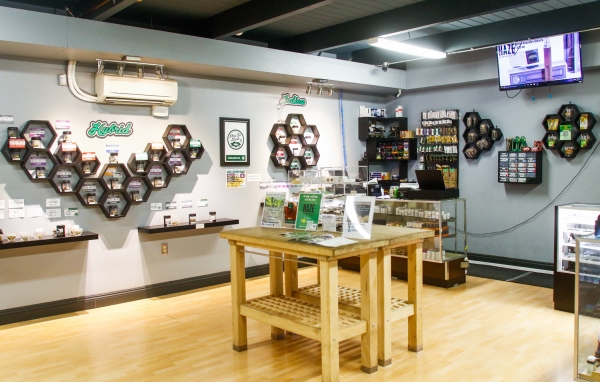
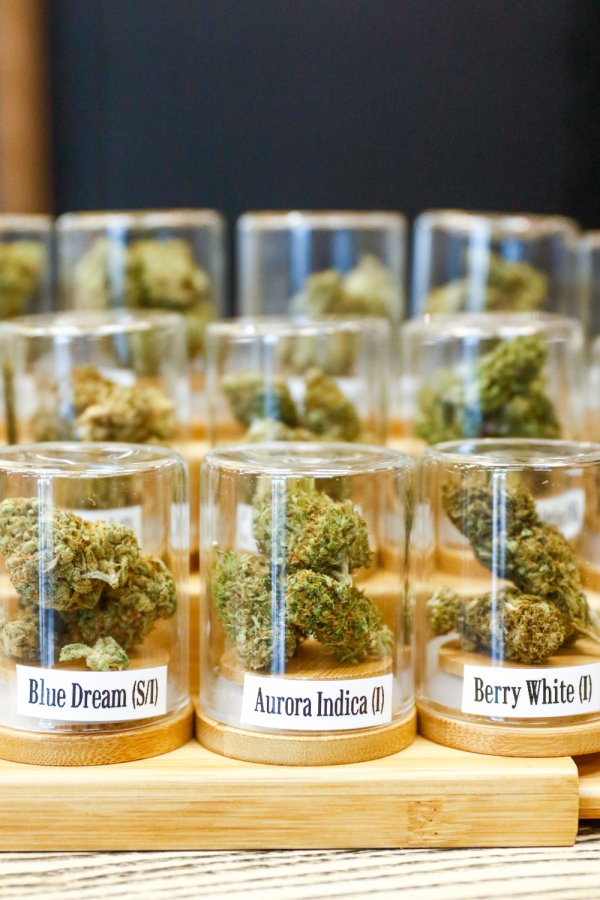
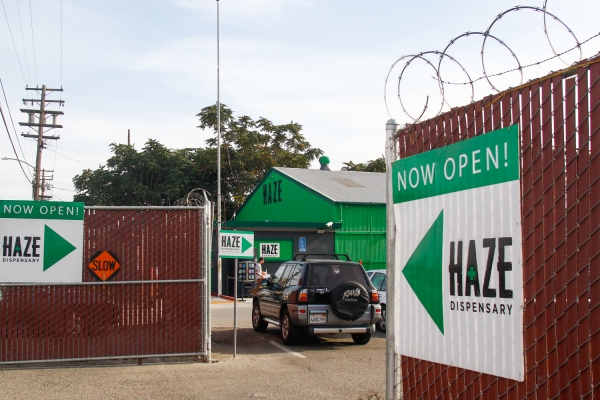
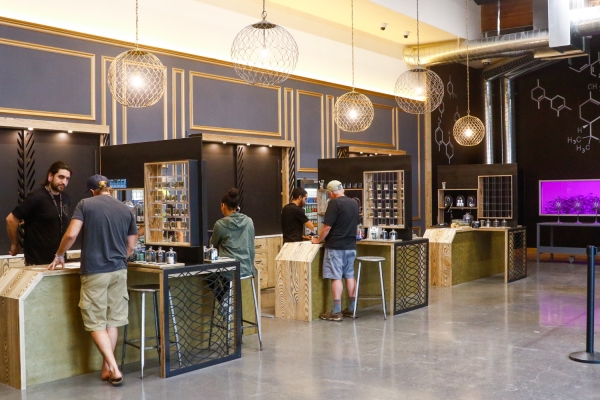
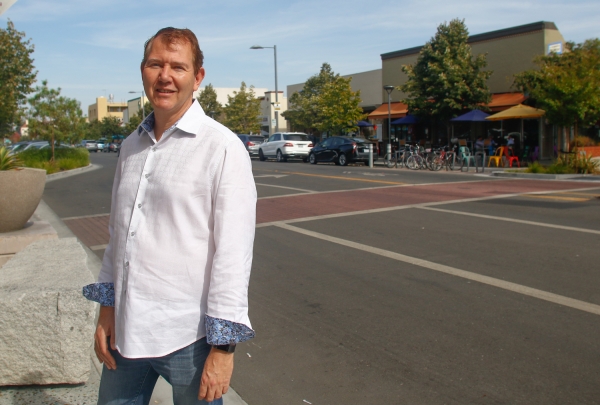
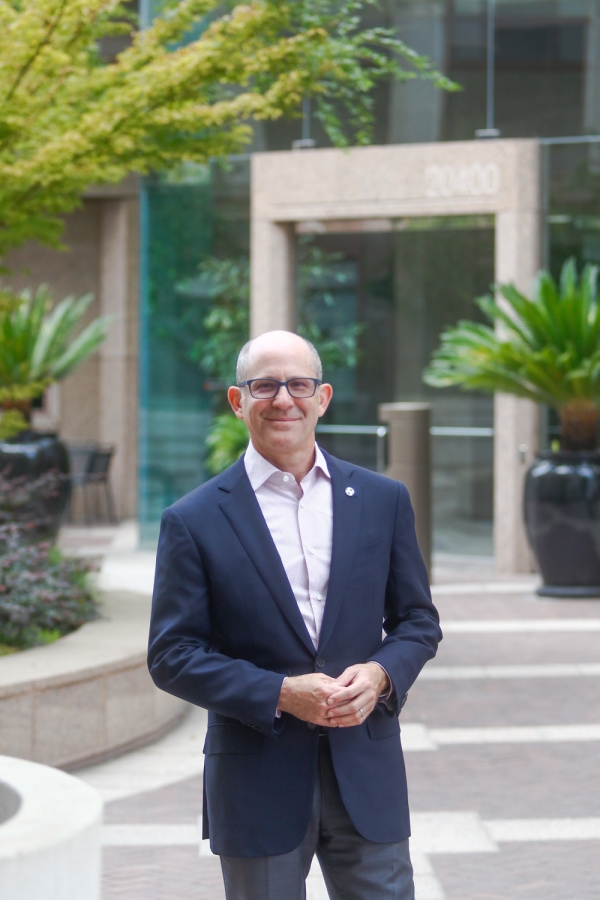
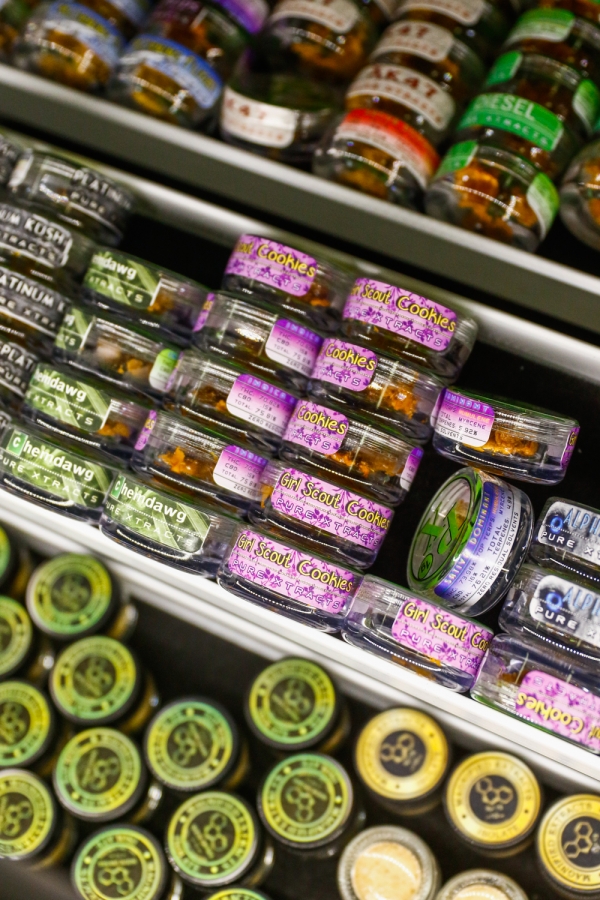

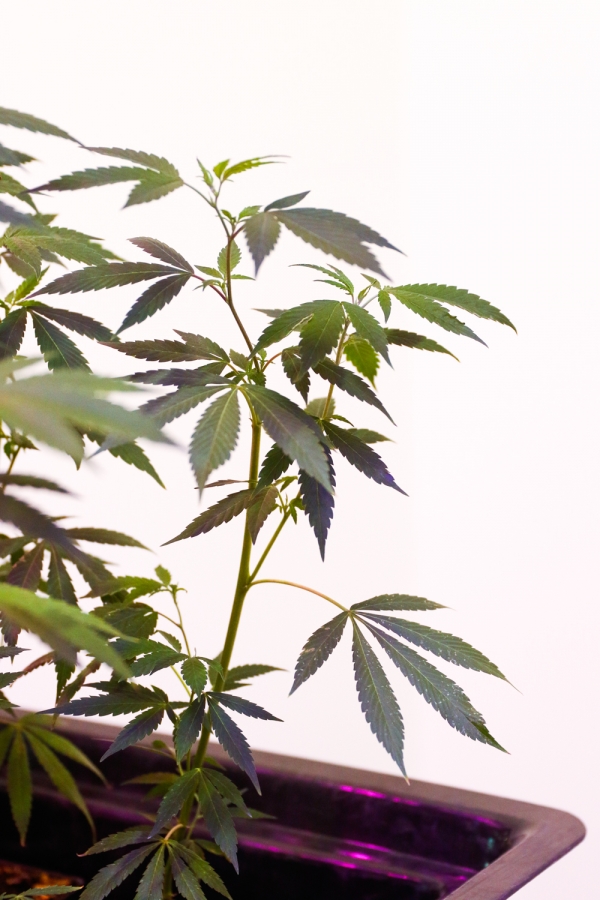
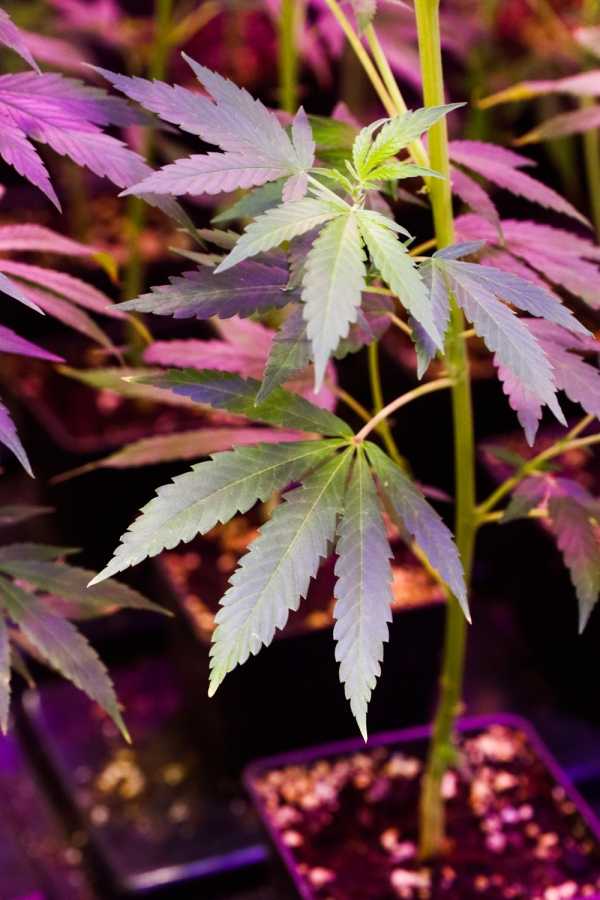
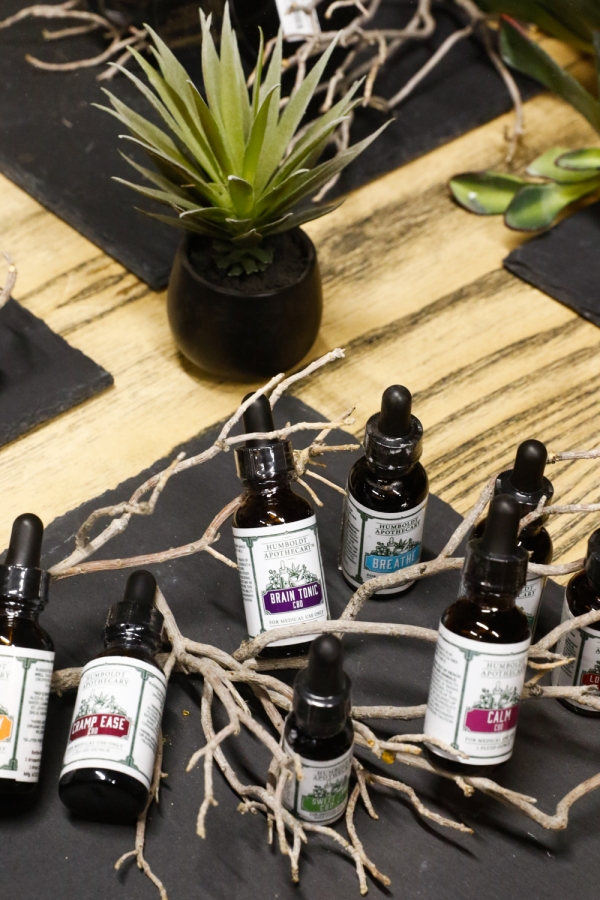
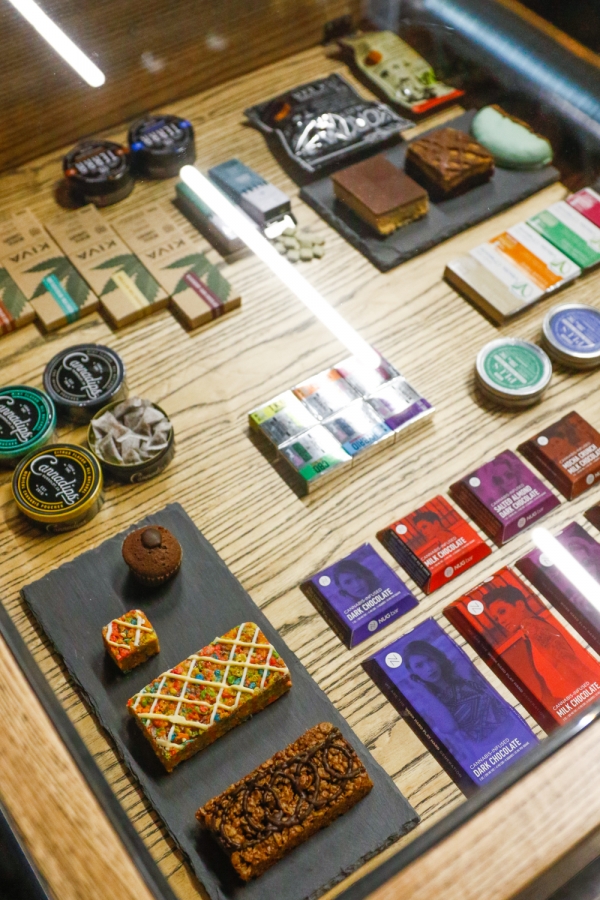
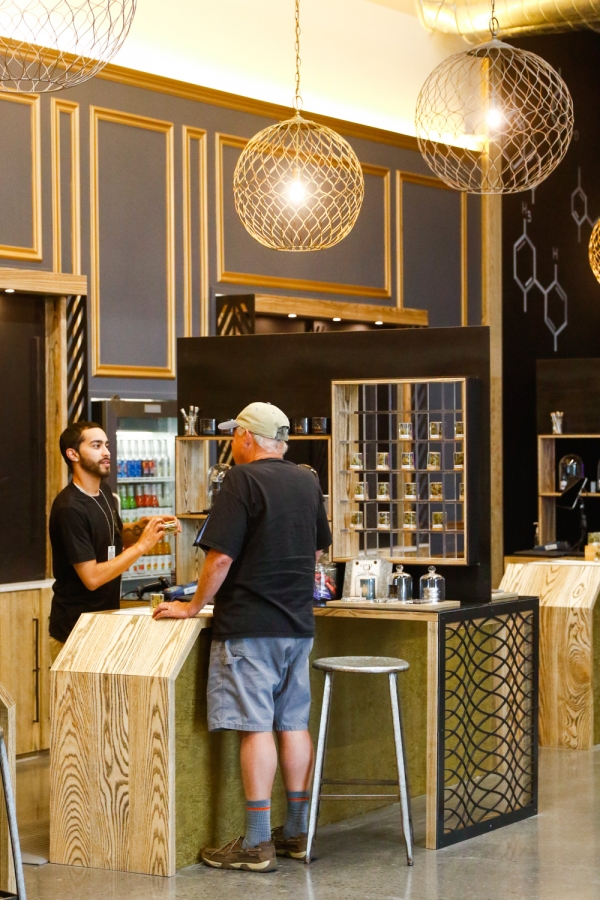
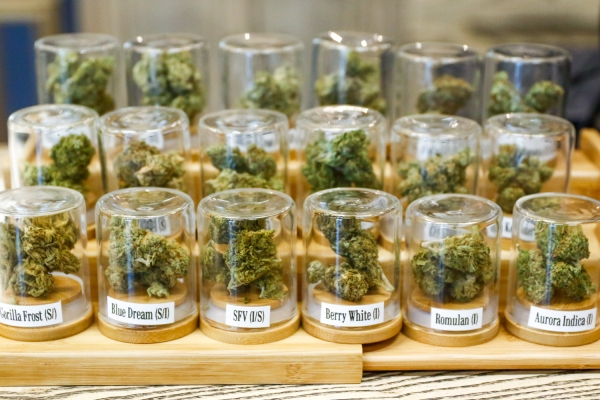
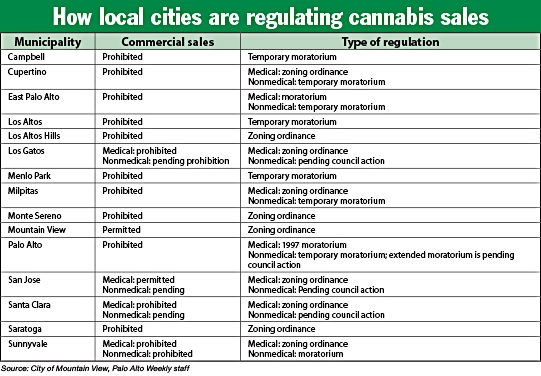


Comments
Crescent Park
on Oct 13, 2017 at 7:33 am
on Oct 13, 2017 at 7:33 am
People will just buy it in other cities and Palo Alto will miss out on the taxes.
Professorville
on Oct 13, 2017 at 9:36 am
on Oct 13, 2017 at 9:36 am
It amazes me how many of my son's high school friends are growing it in their backyards and their parents are ok with it.
Registered user
Embarcadero Oaks/Leland
on Oct 13, 2017 at 9:44 am
Registered user
on Oct 13, 2017 at 9:44 am
Remind me again why the CC gets to reject the will of the voters who voted to approve marijuana sales by a huge margin.
As Tim said above, buyers will continue to buy it and other cities will reap the tax benefits while the CC will continue to scrounge around to find other ways to impose taxes, fees, surcharges, etc. on us.
Adobe-Meadow
on Oct 13, 2017 at 9:54 am
on Oct 13, 2017 at 9:54 am
In the days of Uber and Booster, banning location based services becomes a joke.
Mayfield
on Oct 13, 2017 at 9:56 am
on Oct 13, 2017 at 9:56 am
There's so much anxiety and just an intense environment everyone could use a little chilling out. I say welcome the dispensaries. They have a lot of edible options.
Midtown
on Oct 13, 2017 at 10:13 am
on Oct 13, 2017 at 10:13 am
Stores selling liquor every few blocks in PA, but oh no, lets not have 1 or 2 marijuana dispensaries in our city.
Charleston Meadows
on Oct 13, 2017 at 10:19 am
on Oct 13, 2017 at 10:19 am
Why does the title of this article use the word "rush"? Sounds like desperation to me. You have to take this in steps - first - what does the state have on it's books relative to specifications and laws? Then the county and city need to organize their approach. The city has to follow within the given boundaries. Despite what you think we are not the wild west here. There is a lot of discussion on what boundaries need to be in place for this.
And people keep talking about the so-called windfall "taxes" to be gained. Any taxes go to a state department which then has to use the taxes to pay for the people in that new organization assigned to monitor this activity. You are hoping for some windfall but it has not happened in other states or cities. It is another expenditure of time and money by the city, county, and state. And any argument about reducing the fire department needs to be stopped - somehow people who get involved in these activities overuse their electrical capability and start fires. Or they get some great idea to grow in weird places to hide their grows. The bird brain approach usually ends up with bad results.
Embarcadero Oaks/Leland
on Oct 13, 2017 at 11:32 am
on Oct 13, 2017 at 11:32 am
Another classic example of Palo Alto's entitled nature, and "not in my backyard" mentality. This dynamic plays out on so many levels. Voters in Palo Alto overwhelmingly approve legislation that legalizes recreational use of marijuana. They tout how liberal and progressive they are, and yet disallow dispensaries from opening shop within the city limits. Hypocrisy abound, and how very, very predictable.
Midtown
on Oct 13, 2017 at 11:40 am
on Oct 13, 2017 at 11:40 am
To Resident: I disagree with you on taxes. Are you also saying that any taxes generated by selling liquor in our city, goes all to the state for monitoring activity. I think not.
Let the Fire Chief reorganize the fire dept. obviously priorities have changed over recent years to staff more paramedic units because of the type of 911 calls. If he thinks we need less firefighters at certain times, that's his and the council call to decide.
Downtown North
on Oct 13, 2017 at 1:46 pm
on Oct 13, 2017 at 1:46 pm
Go forward with the ban! Let those who want to indulge go elsewhere for their buys. Palo Alto doesn't need to reap any benefits from this "tax." We're already a very rich community!!
Fairmeadow
on Oct 13, 2017 at 2:18 pm
on Oct 13, 2017 at 2:18 pm
... they all said, while opening the second bottle of wine.
Charleston Meadows
on Oct 13, 2017 at 7:54 pm
on Oct 13, 2017 at 7:54 pm
So glad that EVERYONE has the capability to research a topic. Try the Alcohol and Tobacco Tax and Trade Bureau.The tax generated by a sale is an excise tax paid to the agency on a quarterly basis.
The person who has the store is also paying a lease or rent cost and insurance. Person has to make a profit to stay in business. We do not have cheap rent or lease rates here. A lot of assumptions that are not going to work very well if that is the only product in the store. Doing this type of business in PA is sketchy at best. Other retailers are not doing so well. If anyone can stay in business more than three months based on the cost to stock the store, pay employees, and meet the utility costs will be overwhelming.
My opinion - I see a bunch of 60 year old rock and rollers reliving their youth.
College Terrace
on Oct 13, 2017 at 8:10 pm
on Oct 13, 2017 at 8:10 pm
During rush hour, the length of ECR between Stanford and Page Mill is already more fragrant than the beauty section in Bloomingdales. Let's just call it Ode de THC or Channel Number Delta-9.
Advocates will claim it is no worse than alcohol but users obviously compare it more synonymously to drinking coffee.
Fairmeadow
on Oct 14, 2017 at 12:08 am
on Oct 14, 2017 at 12:08 am
It is evident from the table in the article that Palo Alto is in excellent company: nearly all Peninsula are wisely choosing to ban pot dispensaries and the unsavory element that comes with them.
Old Palo Alto
on Oct 14, 2017 at 12:18 am
on Oct 14, 2017 at 12:18 am
Local Medical Dispensaries could put the Smoke and Vape shops in Palo Alto out of business. From what I’ve learned many of them have been selling marijuana for a couple of decades.Palo Alto should take control of it’s destiny and be a leader as it has in other areas of community and city management.
another community
on Oct 14, 2017 at 5:18 am
on Oct 14, 2017 at 5:18 am
Exploring the Ecological Association Between Crime and Medical Marijuana Dispensaries
Consistent with previous work, variables measuring routine activities at the ecological level were related to crime. There were no observed cross-sectional associations between the density of medical marijuana dispensaries and either violent or property crime rates in this study. These results suggest that the density of medical marijuana dispensaries may not be associated with crime rates or that other factors, such as measures dispensaries take to reduce crime (i.e., doormen, video cameras), may increase guardianship such that it deters possible motivated offenders. Web Link
Charleston Meadows
on Oct 14, 2017 at 6:44 am
on Oct 14, 2017 at 6:44 am
Free Press - no "study" is free - the goal of any study is spelled out prior to the start of the study and the design of any study is to arrive at a preconceived conclusion. Reporter is from "Another Community". As to this community SU is in process of expanding their community and based on the cost of living in this area we are not going to go down the path of realigning our overall community goals to look like a NORCAL pot parlor. We are going to look like a university city.
As to the NORCAL pot growers the SFC is reporting that the whole industry in the NORCAL communities is wiped out due to fire and FEMA, et all do not insure for this product. Many of the wine growers were busy converting to what they thought was the next big product for the state. Unfortunately growers in NORCAL do not typically install all of the universal growing standards as to fire protection, electrical usage and water usage consistent with the overall community in which they reside.
another community
on Oct 14, 2017 at 10:05 am
on Oct 14, 2017 at 10:05 am
Resident:
Another community? Central America is not a pull down option. So what would you prefer us to use? Are you suggesting this study has other alternative motives to reach in what you have described as “preconceived conclusions”? This renowned Organization has no stake or shareholder interests in the Marijuana industry and is completely unbiased...
Charleston Meadows
on Oct 14, 2017 at 10:54 am
on Oct 14, 2017 at 10:54 am
I don't get the point you are trying to make here. I am talking about Palo Alto and where we are going with the economy. Your comment about Central America - what is the point other than it is the growing location alternative for illegal transport of drugs. The NORCAL growers are supposedly the "legal" growers - they hope. As to PA and the locations suggested above on ECR you are on notice that area is going through a major transition for transportation and apartments. We are in an "upgrade" mode to tear down existing older one-story buildings and replace with new multi-level buildings. And the rent will not be cheap. Look a the rest of ECR in MV and MP and it is happening now.
East Palo Alto
on Oct 15, 2017 at 7:27 pm
on Oct 15, 2017 at 7:27 pm
Have any of those critical of their CC for their stance paid much attention to the problems resulting in other states as a result of this legalization? It has been detrimental to the quality of life for many, many people.
Registered user
Embarcadero Oaks/Leland
on Oct 15, 2017 at 9:02 pm
Registered user
on Oct 15, 2017 at 9:02 pm
And it's been positive for many, many more people and the coffers of many states and cities. Think how much money the federal govt. could save fighting the Mexican cartels. Think how much safer Mexican tourism would be without the cartels.
Prohibition didn't work for alcohol, either.
Either way, the citizens of Palo Alto and California VOTED to make it available by a wide margin. Research how many branch libraries and police officers has San Jose, for example, has funded with its revenues from medical marijuana alone and think about it the next time PA pleads poverty.
Fairmeadow
on Oct 15, 2017 at 11:16 pm
on Oct 15, 2017 at 11:16 pm
Please, please, please; when will all this idiocy end. The naysayers are just like the idiots that supported Prohibition. The drug war is lost. Marijuana is good, it helps medically, brings in revenue, and lets people have fun without the use of alcohol. I am positive that opioid use would decline if dope was legalized by the Feds because it works great for pain. Legalize, let it's use be under the same as alcohol. It is the only rational answer, period. Just do it, it is what we want and what we voted to have. Stop the insanity now.
Charleston Meadows
on Oct 16, 2017 at 8:25 am
on Oct 16, 2017 at 8:25 am
People keep referring to the supposed income from taxes on pot sales. It will be an excise tax paid to the Alcohol and Tobacco Tax and Trade Bureau. So get your facts on the table as to how that tax gets back to the city at the top level. In Colorado they have stated that the cost of managing this whole show is in excess of any income derived from it. What is does is fund an agency and employ people to supervise people and the whole show. That costs money - and eventually pension costs. Let's hire more people to manage people - sorry same old story dressed up on a new package. So that is the challenge - tell us how that excise tax gets fed back to the city. What really happens here is that the developer who owns the building gets a new tenant for the building - so the developer prospers with no risk on his part except for the inhabitants that will probably burn the building down as usually happens now with the heavy electrical usage by this group.
Registered user
Embarcadero Oaks/Leland
on Oct 16, 2017 at 10:05 am
Registered user
on Oct 16, 2017 at 10:05 am
Re supposed income from taxes on pot sales, here you go for Colorado, the first state to legalize:
Web Link
Sales tax revenue of around $500,000,000 on sales of $1,300,000,000 (billion)
Charleston Meadows
on Oct 16, 2017 at 10:25 am
on Oct 16, 2017 at 10:25 am
So what do you know about income statements and balance sheets? Sales and Revenue are in the income category. You forgot the expenses and liabilities. There needs to be bottom line net revenue/loss.
Registered user
Embarcadero Oaks/Leland
on Oct 16, 2017 at 10:35 am
Registered user
on Oct 16, 2017 at 10:35 am
Resident, feel free to repeat the search "Colorado Marijuana pot tax revenue" and you'll see that none of the major news articles from CNN, CNBC, US News & World Report etc. etc. mention the dire consequences and liabilities you mention.
In fact, today's Washington Post had an analysis about how legal marijuana reduces opioid deaths significantly, thus reducing the dire consequences and costs of that problem, too.
St. Claire Gardens
on Oct 16, 2017 at 5:20 pm
on Oct 16, 2017 at 5:20 pm
Rush? Hardly. Palo Alto is so far behind on this it's silly. Palo Alto is so wealthy we don't need the tax revenue? Seriously? Is that why our budget is blown for schools and we can't pay our pension debt? Wake up and smell the cat food.
Set up the usual restrictions on location and square footage and get on with life. Resistance is futile. The people have spoken.
Registered user
Barron Park
on Oct 16, 2017 at 10:02 pm
Registered user
on Oct 16, 2017 at 10:02 pm
The users miss the point. People don't object to legalizing Marijuana because it is no worse than alcohol, they object because it is just as bad.
If it causes even a tiny fraction of the destruction in lives, families and communities as alcohol and tobacco have throughout history then it should be nothing to celebrate.
Downtown North
on Oct 17, 2017 at 12:42 am
on Oct 17, 2017 at 12:42 am
Ever been to the Rose n' Crown downtown? The outside seating area is full of disgusting cigarette smokers and ruins it (for people who don't like rat poison). The day I can spark up a doobie there... that'll be the day.
Professorville
on Oct 17, 2017 at 3:19 am
on Oct 17, 2017 at 3:19 am
Funny how origin of Palo Alto was enshrined with the Leland Stanford's Prohibition of alcohol within the city limits and old Whiskey Gulch was the place to go. High School kids used to park their cars in a circle, turn on the radio's, dring and dance in front of Leland Jr's tomb. Now alcohol abounds yet Palo Alto still tries to ban the legal growing of marijuana, dispensaries etc. First time tragedy, now a farce. Get your license, get some clones, get an Earthbox from Summer Winds and go to town!
Downtown North
on Oct 17, 2017 at 10:09 am
on Oct 17, 2017 at 10:09 am
Anyone who is anti-marijuana is what is wrong with this country. It's a plant and a medicine. We should be ultra progressive on this subject and fully embrace it and encourage Stanford to conduct as much research as possible on the plant. Shame on all of you spouting negative rhetoric on marijuana.
Charleston Meadows
on Oct 17, 2017 at 10:24 am
on Oct 17, 2017 at 10:24 am
Yes - times do change. Take Al Gore - his family fortune in Tennessee is based on the tobacco industry and of course the slaves that helped that dynasty produce product. Of course no comment from him on the destruction to the environment since tobacco was big business back then. It is also big business now as Carlos Slim - one of richest men in world and resident of Mexico has tobacco (?) farms throughout our southern neighbor countries. Let's all agree that there is big money here, especially with the former President of Mexico - Fox - popping around at SU and the Commonwealth Club espousing the financial benefits of this activity and his palling around with Gov. Brown and calling Trump crazy since Trump does not embrace this topic. So big time political clout exercising their product knowledge in every way possible.
So how has that helped our Southern Neighbors (?). We keep talking about immigration in the middle of the subject - like when people appear at our border. We do not talk about the origin of the problem - where the people come from and what they are running away from. Not good. If we start the immigration problem at it's source and talk about how these countries are going wrong then we can change the focus of many topics. Many of these problems need to be managed at the source where corruption is endemic to the whole of society. And this product is the basis of much which is going wrong.
Another Palo Alto neighborhood
on Oct 17, 2017 at 11:43 am
on Oct 17, 2017 at 11:43 am
It this is truly medicine then it should be imbibed in the same way as other medicines.
My big problem though is that we are doing our best to stamp out smoking for health reasons, for second hand smoke reasons, for the fact that it is an unpleasant and antisocial habit. Now it seems that the rules are all going to be turned upside down for something which may or may not be beneficial to a small segment of society and the rest of us have to allow them their drug.
How can this be progress? How can we suffer the smell of pot and pretend it is OK? I like to breath clean air, not polluted air.
Registered user
Barron Park
on Oct 17, 2017 at 12:27 pm
Registered user
on Oct 17, 2017 at 12:27 pm
I think the commenter meant that Marijuana is a plant and a CARCINOGEN. According to the Mayo Clinic, it has adverse affects on the following:
Brain
Heart
Lungs
Liver
Eyes
Stomach
Ears
Blood pressure
Blood sugar levels
People taking female hormones
People with immune disorders
Those who suffer from seizures
Have learning disorders
musculoskeletal or connective tissue disorders
Children, pregnant or breast feeding women
People operating vehicles
Other than that it is good for you.
Web Link
Adobe-Meadow
on Oct 17, 2017 at 2:19 pm
on Oct 17, 2017 at 2:19 pm
A direct quote from the Mayo Clinic link your posted:
"Cannabinoids are likely safe when used for specific conditions at the recommended doses for the recommended amount of time."
Thanks for the info.
They also list side possible effects like every other drug ever sold in the past 2 or 3 decades. I would imagine a multitude of these would be reduced depending on the form of ingestion or application, so it could be tailored to the individual to avoid these possible side effects.
You only listed the _possible_ side effects interestingly from the link, Mayo does not instruct people NOT to use, rather they encourage cautious use. You totally ignored the summary from the Mayo Clinic: "Cannabinoids are likely safe when used for specific conditions at the recommended doses for the recommended amount of time."
Registered user
Barron Park
on Oct 17, 2017 at 5:22 pm
Registered user
on Oct 17, 2017 at 5:22 pm
I would suggest recreational use starting in teenage years and continuing through adulthood and old age would fit the former and not the latter.
Adobe-Meadow
on Oct 18, 2017 at 5:39 am
on Oct 18, 2017 at 5:39 am
Yes, I agree teens should not use cannabis just as they should not use alcohol. You never mentioned that once in your original misleading post. It was as if you intentionally ignored the main point about the general safety of cannabis in order to craft a post more in line with your thinking on the issue, even when the actual example you cited states otherwise.
Registered user
Barron Park
on Oct 18, 2017 at 9:43 am
Registered user
on Oct 18, 2017 at 9:43 am
@Sanctimonious
Not at all. Apparently you missed the earlier post and the original point. Thank you for illustrating it so perfectly.
"The users miss the point. People don't object to legalizing Marijuana because it is no worse than alcohol, they object because it is just as bad.
If it causes even a tiny fraction of the destruction in lives, families and communities as alcohol and tobacco have throughout history then it should be nothing to celebrate."
Wherever Alcohol and tobacco have worked their way into the culture, they have been a scourge on society. Together, they are responsible for literally millions of shortened lives and unnecessary deaths. Is that the proud standard you wish to compare to?
I would argue that the same has already been proven true for marijuana unless you consider the disastrous sixties hippy culture or the impoverished inner cities resounding successes.
I actually support legalization for consenting adults but object to misrepresenting pot as mild and harmless. If you think Marijuana is some kind of miracle drug and does not have deleterious effects after long term use then maybe you have been smoking something.
Adobe-Meadow
on Oct 18, 2017 at 10:27 am
on Oct 18, 2017 at 10:27 am
You disagree with me but I cannot find the statement about the general safety of cannabis as stated by Mayo in any part of your post that I replied to. Can you copy it from that post and paste it here?
Registered user
Barron Park
on Oct 18, 2017 at 11:38 am
Registered user
on Oct 18, 2017 at 11:38 am
Sure,
How about this one from the National Institute of Health (NIH).
"The U.S. Food and Drug Administration (FDA) hasn’t found that marijuana is safe or effective for treating any health problems. However, some states and the District of Columbia allow its use for certain health purposes. States have legalized medical marijuana because of decisions made by voters or legislators—not because of scientific evidence of its benefits and risks."
Mayo Clinic, NIH, FDA. Sorry, three strikes and you are out.
Adobe-Meadow
on Oct 18, 2017 at 2:49 pm
on Oct 18, 2017 at 2:49 pm
No, I'd rather not change the subject. Taking us back on track, I said you left out the statement about the relative safety made by the Mayo clinic, you disagreed, I asked you to paste it, you could not so tried to change the subject.
That's enough for me. Enjoy.
Registered user
Barron Park
on Oct 18, 2017 at 5:37 pm
Registered user
on Oct 18, 2017 at 5:37 pm
Ok, Ok, you got me.
There is obviously no way to pull the HEMP over your eyes.
The Mayo Clinic does in fact say that herbs are not regulated substances but "Cannibinoids are likely safe when used for SPECIFIC CONDITIONS at the RECOMMENDED DOSES for the RECOMMENDED AMOUNT OF TIME."
Not to get into the WEEDs, but that was not my dispute and occasional use for a prescribed malady is far different than prolonged recreational use as a lifestyle choice.
To imply that using Marijuana regularly is not as damaging as smoking or drinking is a little like the POT refusing to call the kettle black.
If someone tells you otherwise, they are selling you a bill of GANJA.
Mountain View
on Oct 18, 2017 at 7:57 pm
on Oct 18, 2017 at 7:57 pm
Funny -- you *would* think that a marijuana user would be a far more mellow sort of person.
But I guess that isn't always the case, is it now?
Charleston Meadows
on Oct 19, 2017 at 10:41 am
on Oct 19, 2017 at 10:41 am
You all can read about the financial fall-out in the pot industry due to the fires in the SJM 10.19.17. Unfortunately the Mayo Clinic does not involve itself with the "business" of pot which is a requirement to get it from the field to your table. At this rate it is not going to make it. Not does it involve itself with the problem of smoke damaged pot that made it through the fire or the new problem of a type of mite that thrives on pot. Nor does it involve itself with the 60's retread generation that probably does not read the Mayo Clinic newsletter or the agricultural issues of delivering clean pot free of mites and other chemical attachments to the leaves.
The marketing of pot requires a special retread 60's approach as a selling tool. How totally unappealing. Have you noticed that the location of these fires both north and south are in the pot growing areas where the "growers" are busy redirecting local water sources and abusing the electrical capability of their growing areas. There was even a pot growing location on the Mid-Peninsula Regional Open Space Preserve that recently was taken out. We do not donate money to organizations that have pot farms that are illegal to the location. And we have to wonder about the open space properties in the immediate area. Get those helicopters up and going to check out where illegal sites are and take them out. They are a fire hazard.
Menlo Park
on Oct 19, 2017 at 11:18 am
on Oct 19, 2017 at 11:18 am
"The marketing of pot requires..."
In my experience, marijuana hasn't really required a lot of marketing.
Charleston Meadows
on Oct 19, 2017 at 3:27 pm
on Oct 19, 2017 at 3:27 pm
If anyone is going to go into a actual legal business selling pot then they are going to be required to function as a business and submit a tax return. Once this is legalized than all of the taxes will go to the Excise tax department. And people will be required to make a profit to stay in business. This has been moved to a whole different plane than the previous under the table operation. Congratulations - so many have worked for this outcome and now those people will have to live with the consequences. Be careful what you wish for. It is like what prohibition was with alcohol then with the regulations that followed with removal of prohibition. So you now have a store - have to make profit to pay for the rent, insurance, employees, pay taxes, etc. WOOHOO! And of course dress the part.
Downtown North
on Oct 19, 2017 at 11:34 pm
on Oct 19, 2017 at 11:34 pm
Worst conversation about weed I've ever read. Neither of you should ever talk about dope ever again.
Watch this show, it's phenomenal:
Web Link
another community
on Oct 20, 2017 at 1:08 am
on Oct 20, 2017 at 1:08 am
Wouldn't a dispensary ban increase traffic in Palo Alto? (delivery cars, residents driving to other cities...).